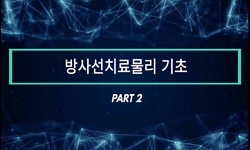Purpose The purpose of this study was to investigate the survival trends and patterns of failure in patients with stage II nasopharyngeal carcinoma (NPC) treated with radiotherapy (RT) and chemotherapy over the last 20 years. Materials and Methods Thi...
http://chineseinput.net/에서 pinyin(병음)방식으로 중국어를 변환할 수 있습니다.
변환된 중국어를 복사하여 사용하시면 됩니다.
- 中文 을 입력하시려면 zhongwen을 입력하시고 space를누르시면됩니다.
- 北京 을 입력하시려면 beijing을 입력하시고 space를 누르시면 됩니다.



Patterns of Failure and Survival Trends in 3,808 Patients with Stage II Nasopharyngeal Carcinoma Diagnosed from 1990 to 2012: A Large-Scale Retrospective Cohort Study
한글로보기https://www.riss.kr/link?id=A106385282
-
저자
Xue-Song Sun (Sun Yat-Sen University Cancer Center, Guangzhou, China) ; Di-Han Liu (Sun Yat-Sen University Cancer Center, Guangzhou, China) ; Sai-Lan Liu (Sun Yat-Sen University Cancer Center, Guangzhou, China) ; Qiu-Yan Chen (Sun Yat-Sen University Cancer Center, Guangzhou, China) ; Shan-Shan Guo (Sun Yat-Sen University Cancer Center, Guangzhou, China) ; Yue-Feng Wen (Sun Yat-Sen University Cancer Center, Guangzhou, China) ; Li-Ting Liu (Sun Yat-Sen University Cancer Center, Guangzhou, China) ; Hao-Jun Xie (Sun Yat-Sen University Cancer Center, Guangzhou, China) ; Qing-Nan Tang (Sun Yat-Sen University Cancer Center, Guangzhou, China) ; Yu-Jing Liang (Sun Yat-Sen University Cancer Center, Guangzhou, China) ; Xiao-Yun Li (Sun Yat-Sen University Cancer Center, Guangzhou, China) ; Jin-Jie Yan (Sun Yat-Sen University Cancer Center, Guangzhou, China) ; Ming-Huang Hong (Sun Yat-Sen University Cancer Center, Guangzhou, China) ; Jun Ma (Sun Yat-Sen University Cancer Center, Guangzhou, China) ; Lin-Quan Tang (Sun Yat-Sen University Cancer Center, Guangzhou, China) ; Hai-Qiang Mai (Sun Yat-Sen University Cancer Center, Guangzhou, China)

- 발행기관
- 학술지명
- 권호사항
-
발행연도
2019
-
작성언어
English
- 주제어
-
등재정보
KCI등재,SCIE,SCOPUS
-
자료형태
학술저널
- 발행기관 URL
-
수록면
1449-1463(15쪽)
-
KCI 피인용횟수
1
- 제공처
- 소장기관
-
0
상세조회 -
0
다운로드
부가정보
다국어 초록 (Multilingual Abstract)
Purpose The purpose of this study was to investigate the survival trends and patterns of failure in patients with stage II nasopharyngeal carcinoma (NPC) treated with radiotherapy (RT) and chemotherapy over the last 20 years.
Materials and Methods Thirty-eight hundred and eight patients diagnosed with stage II NPC between January 1990 and December 2012 were involved in this retrospective cohort study. All patients were treated with RT. According to the main imaging techniques and RT technology, we categorized these patients into four calendar periods: 1990-1996, 1997-2002, 2003-2007, and 2008-2012. Overall survival (OS), progression-free survival (PFS), locoregional relapse-free survival (LRFS), and distant metastasis–free survival (DMFS) were served as the clinical outcome.
Results After a median follow-up period of 84.7 months, we observed increasing trends in survival and disease control. The 3- and 5-year OS rates increased from 87.1% and 78.7% in the first calendar period to 97.4% and 94.5% in the last calendar period, respectively (p < 0.001). Additionally, significant increasing trends could be seen in the PFS and LRFS during the four calendar periods. In the subgroup analysis, the LRFS in patients older than 50 years at diagnosis showed greater improvement than younger patients. However, the rate of distant metastasis was stable and relatively low, as the 5-year DMFS ranged from 90.5% to 94.7% among the four calendar periods.
Conclusion The survival rates in patients with stage II NPC showed increasing trends from 1990 to 2012. The advance of RT provided excellent locoregional control and enhanced OS.
참고문헌 (Reference)
1 Lee AW, "Treatment results for nasopharyngeal carcinoma in the modern era : the Hong Kong experience" 61 : 1107-1116, 2005
2 Xiao WW, "Treatment outcomes after radiotherapy alone for patients with early-stage nasopharyngeal carcinoma" 74 : 1070-1076, 2009
3 Chua DT, "Treatment outcome after radiotherapy alone for patients with stage I-II nasopharyngeal carcinoma" 98 : 74-80, 2003
4 Edge SB, "The American Joint Committee on Cancer: the 7th edition of the AJCC cancer staging manual and the future of TNM" 17 : 1471-1474, 2010
5 강민규, "Role of Chemotherapy in Stage II Nasopharyngeal Carcinoma Treated with Curative Radiotherapy" 대한암학회 47 (47): 871-878, 2015
6 Lee AW, "Retrospective analysis of 5037 patients with nasopharyngeal carcinoma treated during 1976-1985 : overall survival and patterns of failure" 23 : 261-270, 1992
7 Sun Y, "Recommendation for a contouring method and atlas of organs at risk in nasopharyngeal carcinoma patients receiving intensitymodulated radiotherapy" 110 : 390-397, 2014
8 Yang Z, "Pretreatment(18)F-FDG uptake heterogeneity can predict survival in patients with locally advanced nasopharyngeal carcinoma : a retrospective study" 10 : 4-, 2015
9 Yi JL, "Nasopharyngeal carcinoma treated by radical radiotherapy alone : ten-year experience of a single institution" 65 : 161-168, 2006
10 Lai V, "Nasopharyngeal carcinoma : comparison of diffusion and perfusion characteristics between different tumour stages using intravoxel incoherent motion MR imaging" 24 : 176-183, 2014
1 Lee AW, "Treatment results for nasopharyngeal carcinoma in the modern era : the Hong Kong experience" 61 : 1107-1116, 2005
2 Xiao WW, "Treatment outcomes after radiotherapy alone for patients with early-stage nasopharyngeal carcinoma" 74 : 1070-1076, 2009
3 Chua DT, "Treatment outcome after radiotherapy alone for patients with stage I-II nasopharyngeal carcinoma" 98 : 74-80, 2003
4 Edge SB, "The American Joint Committee on Cancer: the 7th edition of the AJCC cancer staging manual and the future of TNM" 17 : 1471-1474, 2010
5 강민규, "Role of Chemotherapy in Stage II Nasopharyngeal Carcinoma Treated with Curative Radiotherapy" 대한암학회 47 (47): 871-878, 2015
6 Lee AW, "Retrospective analysis of 5037 patients with nasopharyngeal carcinoma treated during 1976-1985 : overall survival and patterns of failure" 23 : 261-270, 1992
7 Sun Y, "Recommendation for a contouring method and atlas of organs at risk in nasopharyngeal carcinoma patients receiving intensitymodulated radiotherapy" 110 : 390-397, 2014
8 Yang Z, "Pretreatment(18)F-FDG uptake heterogeneity can predict survival in patients with locally advanced nasopharyngeal carcinoma : a retrospective study" 10 : 4-, 2015
9 Yi JL, "Nasopharyngeal carcinoma treated by radical radiotherapy alone : ten-year experience of a single institution" 65 : 161-168, 2006
10 Lai V, "Nasopharyngeal carcinoma : comparison of diffusion and perfusion characteristics between different tumour stages using intravoxel incoherent motion MR imaging" 24 : 176-183, 2014
11 Chua ML, "Nasopharyngeal carcinoma" 387 : 1012-1024, 2016
12 Hua YJ, "Longterm treatment outcome of recurrent nasopharyngeal carcinoma treated with salvage intensity modulated radiotherapy" 48 : 3422-3428, 2012
13 Sun X, "Long-term outcomes of intensity-modulated radiotherapy for 868 patients with nasopharyngeal carcinoma : an analysis of survival and treatment toxicities" 110 : 398-403, 2014
14 Ma J, "Is the 1997 AJCC staging system for nasopharyngeal carcinoma prognostically useful for Chinese patient populations?" 50 : 1181-1189, 2001
15 Wee JT, "Is nasopharyngeal cancer really a "Cantonese cancer"?" 29 : 517-526, 2010
16 Zhang MX, "Intensity-modulated radiotherapy prolongs the survival of patients with nasopharyngeal carcinoma compared with conventional two-dimensional radiotherapy: a 10-year experience with a large cohort and long follow-up" 51 : 2587-2595, 2015
17 Kwong DL, "Intensity-modulated radiotherapy for earlystage nasopharyngeal carcinoma: a prospective study on disease control and preservation of salivary function" 101 : 1584-1593, 2004
18 Zhao C, "Intensity modulated radiotherapy for local-regional advanced nasopharyngeal carcinoma" 23 (23): 1532-1537, 2004
19 Foo KF, "Gemcitabine in metastatic nasopharyngeal carcinoma of the undifferentiated type" 13 : 150-156, 2002
20 Lee AW, "Evolution of treatment for nasopharyngeal cancer : success and setback in the intensity-modulated radiotherapy era" 110 : 377-384, 2014
21 Tang LQ, "Establishment and validation of prognostic nomograms for endemic nasopharyngeal carcinoma" 108 : djv291-, 2016
22 Yu MC, "Epidemiology of nasopharyngeal carcinoma" 12 : 421-429, 2002
23 Ngeow J, "Docetaxel is effective in heavily pretreated patients with disseminated nasopharyngeal carcinoma" 22 : 718-722, 2011
24 Chen QY, "Concurrent chemoradiotherapy vs radiotherapy alone in stage II nasopharyngeal carcinoma : phase III randomized trial" 103 : 1761-1770, 2011
25 Wu F, "Concurrent chemoradiotherapy in locoregionally advanced nasopharyngeal carcinoma : treatment outcomes of a prospective, multicentric clinical study" 112 : 106-111, 2014
26 Geara FB, "Carcinoma of the nasopharynx treated by radiotherapy alone : determinants of distant metastasis and survival" 43 : 53-61, 1997
27 Vellayappan BA, "Accuracy of(18)F-flurodeoxyglucose-positron emission tomography/computed tomography in the staging of newly diagnosed nasopharyngeal carcinoma : a systematic review and meta-analysis" 48 : 331-338, 2014
28 Peng G, "A prospective, randomized study comparing outcomes and toxicities of intensity-modulated radiotherapy vs. conventional two-dimensional radiotherapy for the treatment of nasopharyngeal carcinoma" 104 : 286-293, 2012
29 Chen YP, "A Bayesian network meta-analysis comparing concurrent chemoradiotherapy followed by adjuvant chemotherapy, concurrent chemoradiotherapy alone and radiotherapy alone in patients with locoregionally advanced nasopharyngeal carcinoma" 26 : 205-211, 2015
동일학술지(권/호) 다른 논문
-
- 대한암학회
- 이영기
- 2019
- KCI등재,SCIE,SCOPUS
-
Characteristics and Treatment Patterns of Patients with Advanced Soft Tissue Sarcoma in Korea
- 대한암학회
- 김효송
- 2019
- KCI등재,SCIE,SCOPUS
-
- 대한암학회
- 정윤선
- 2019
- KCI등재,SCIE,SCOPUS
-
- 대한암학회
- Fan Yang
- 2019
- KCI등재,SCIE,SCOPUS
분석정보
인용정보 인용지수 설명보기
학술지 이력
| 연월일 | 이력구분 | 이력상세 | 등재구분 |
|---|---|---|---|
| 2024 | 평가예정 | 해외DB학술지평가 신청대상 (해외등재 학술지 평가) | |
| 2021-01-01 | 평가 | 등재학술지 선정 (해외등재 학술지 평가) |  |
| 2020-12-01 | 평가 | 등재후보로 하락 (해외등재 학술지 평가) |  |
| 2010-01-01 | 평가 | 등재학술지 유지 (등재유지) |  |
| 2008-01-01 | 평가 | 등재학술지 유지 (등재유지) |  |
| 2005-05-27 | 학술지명변경 | 한글명 : 대한암학회지 -> Cancer Research and Treatment |  |
| 2005-01-01 | 평가 | 등재학술지 선정 (등재후보2차) |  |
| 2004-01-01 | 평가 | 등재후보 1차 PASS (등재후보1차) |  |
| 2002-01-01 | 평가 | 등재후보학술지 선정 (신규평가) |  |
학술지 인용정보
| 기준연도 | WOS-KCI 통합IF(2년) | KCIF(2년) | KCIF(3년) |
|---|---|---|---|
| 2016 | 3.58 | 0.89 | 3.01 |
| KCIF(4년) | KCIF(5년) | 중심성지수(3년) | 즉시성지수 |
| 2.62 | 2.28 | 1.846 | 0.26 |




 KCI
KCI





